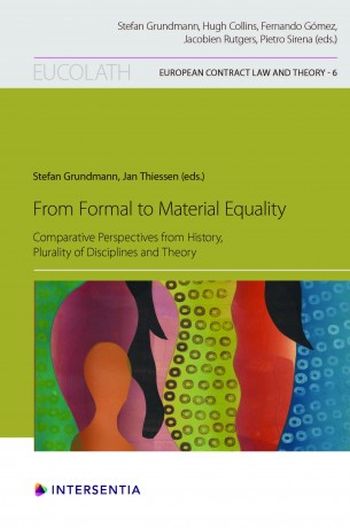
Equality has been seen as the core of any quest of justice since Aristotle’s Nicomachian Ethics. Reaching not only situational equality, but equality in status, however, had not been achieved until modern times. The father of ethics and his systematic enquiry into the concept of justice did not have any problems with foreigners without rights, women as second-class citizens and enslaving people – nor did antiquity at large, medieval era or even the high renaissance. While suum cuique (treating equal issues equally and unequal issues unequally) had been in place since antiquity and Cicero, personal status still had to wait to be recognised as a target of equality concerns. Related to this, no agenda was designed for achieving a paradigm reaching beyond mere formal equality, which only implies treating same things formally the same, and the material quest for equality has come to the fore as a vision only very recently.
This book explores these issues – from general equality to equality also in personal status, hence also anti-discrimination, and the change from formal to material concepts of equality – in time and in theoretical approaches. In time, it describes firstly how the equality of indigenous people in Latin America was originally developed as a postulate on the basis of the Bible (all men are similar to God) and from that also as a postulate of equality in law. It further describes how this postulate became a rule of natural law and then a powerful political value, also for the masses and daily reality, in the French Revolution (and in the US), then as posited law. In the theory and history of philosophical thought, two questions are discussed in particular. The first is how and whether ‘more material protection’ cannot only be conceived for freedom at all, but as well for equality, even if it is so contingent in times and diverse societies (‘what is equal’)? The second is whether – beyond personal status – an absolute equality right exists nowadays, namely absolutely equal dignity for human beings?
This discussion is followed by how to integrate equality into economics, so targeted towards differentiation in all matters, and efficiency of selection. It is further followed by how sociology’s prime quest nowadays might well be the very core of the question: the search for more material protection, namely against systemic discriminations, and such a search even in the toughest contexts such as digitalization.